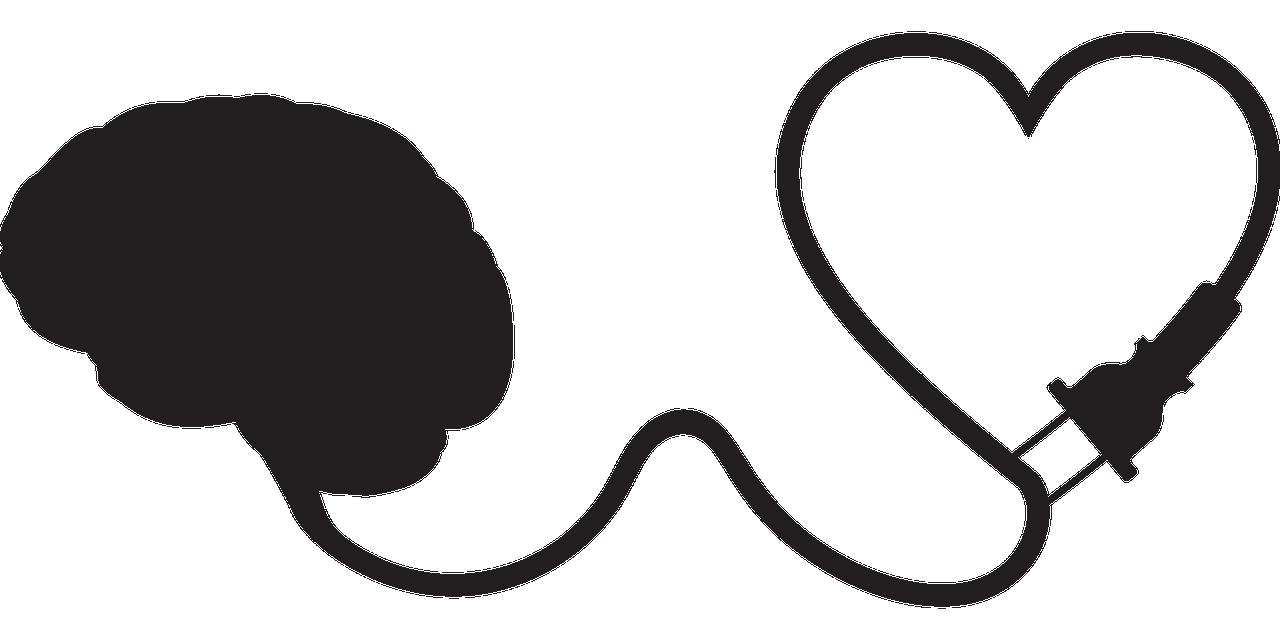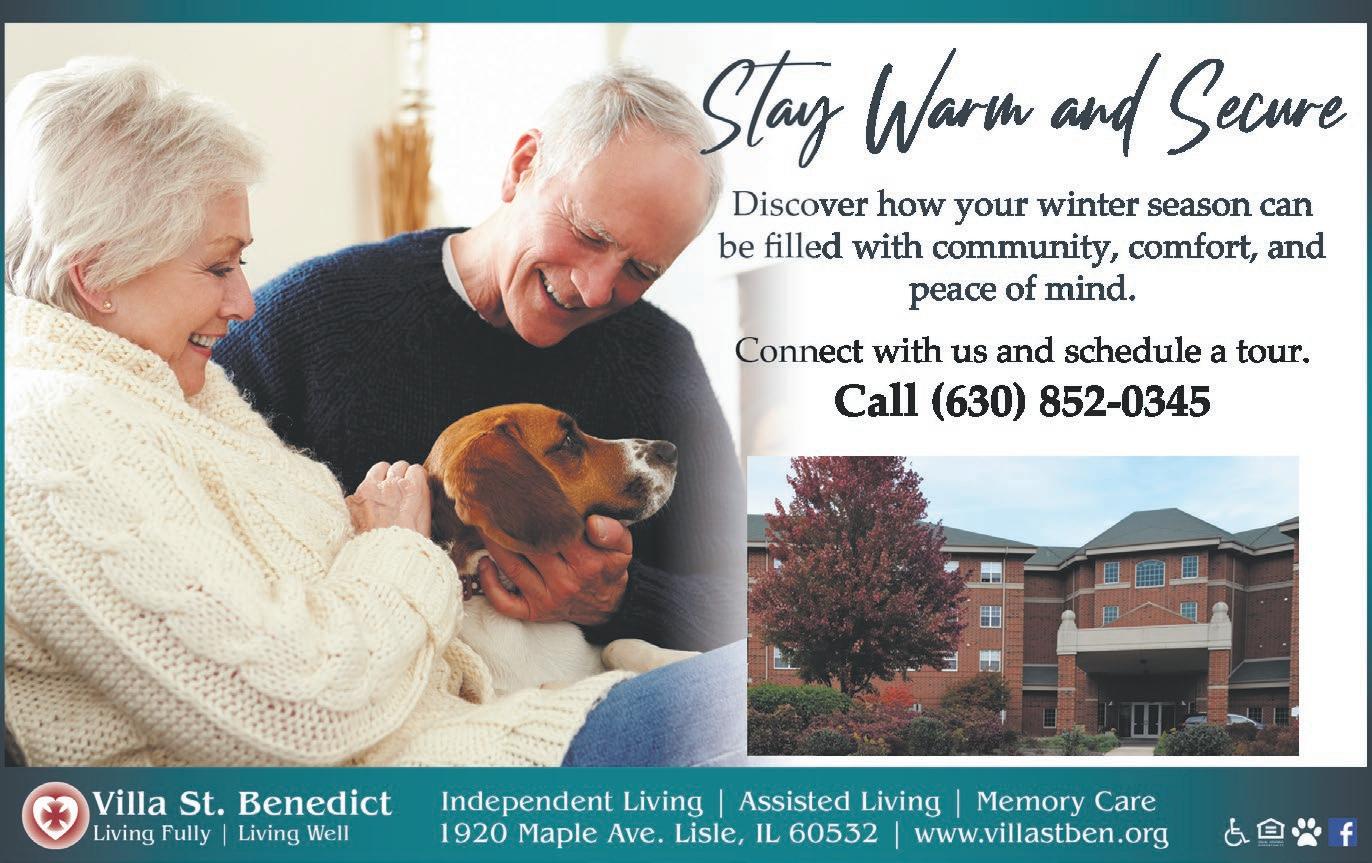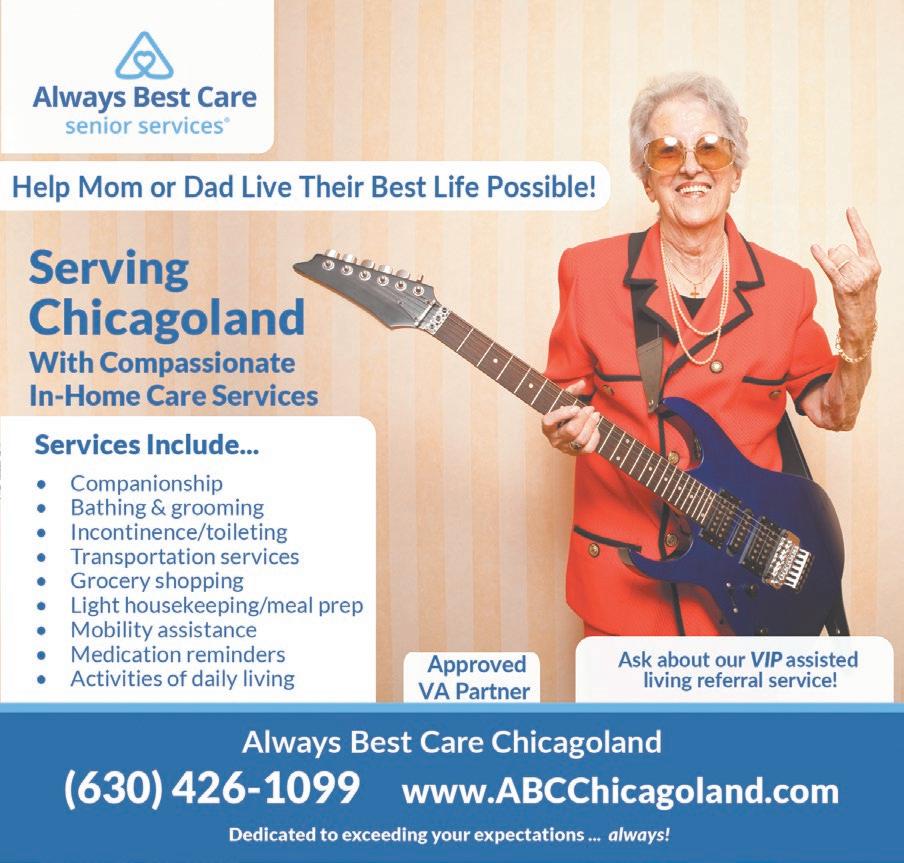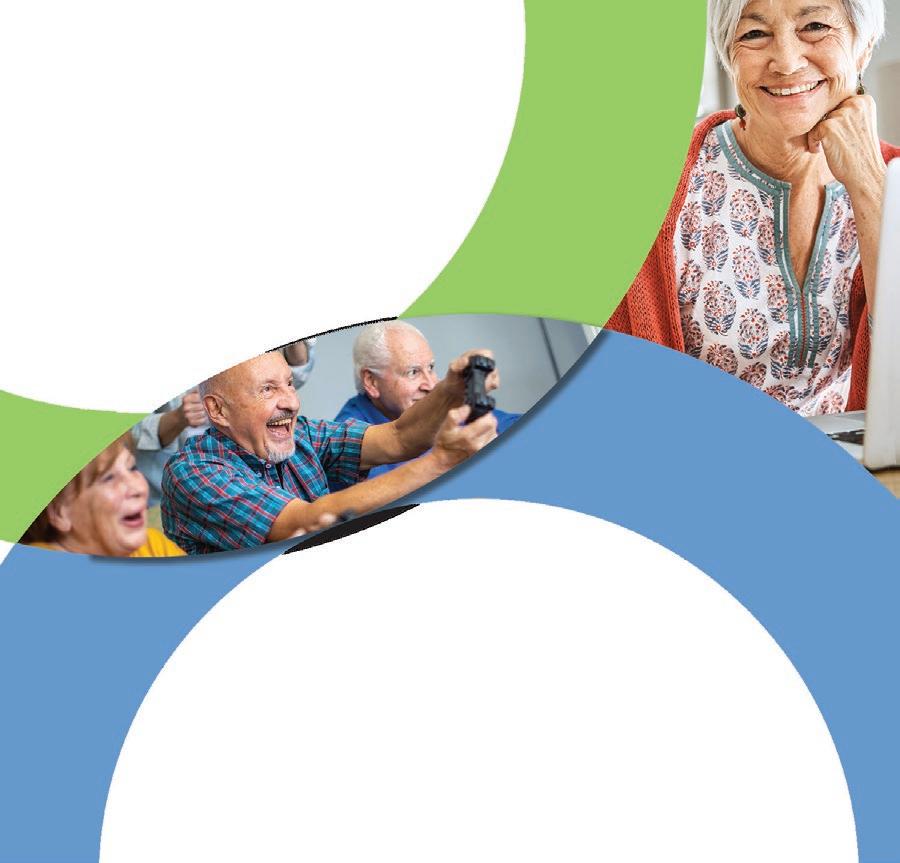
29 minute read
senior focus
There is No Success in Caregiving without
By Maura Horton Self Care
Advertisement
Caregiving, while uniquely rewarding, is never an easy task. Millions of people are happy to take on the role and meet the needs of their family member, but it is a role that requires a lot of self-sacrifice.
November is National Family Caregivers month and as the COVID pandemic continues to affect daily life, caregivers are some of the most impacted by the virus. A recent survey by the University of Pittsburgh found that COVID-19 is having a profoundly negative impact on people who care for family members with disabilities. Caregivers reported worse mental and physical health, money worries, and problems accessing health care because of COVID-19. 43% of caregivers said their mental health was worse than before the pandemic (compared to 36% of non-caregivers).
Family members who are the primary caregiver for seniors have been facing extreme stress and challenges as well. Many caregivers worry about bringing the virus home and infecting their loved ones. Others are wanting to be able to visit their loved ones in a nursing home or care facility, concerned about isolation.
Burnout is something all caregivers have to deal with throughout their caregiving journey. Now, with more obstacles to face than ever before it is vital for caregivers to set aside time for themselves. Both physical and mental health need to be supported through self-care and here are a few ways caregivers can start:
Say Goodbye to Guilt
Caregiving can be riddle with guilt. Caregivers can often find themselves feeling like they should have been better or done better and they have regret for things they said or didn’t do. Not every day, every moment or every interaction is perfect. Everyone has moments they wish they could redo. It is important not to dwell on these moments and recognize that forgiving perceived shortcomings will create an opportunity to do better next time.
Take Notes
Caregivers often take notes about the person they are caring for to use as a reference or to bring to doctor appointments. This is something they should do for themselves as well. Keep a journal of how the day went, was it a good day, what feelings did the day trigger, what was learned and other information. Going back and looking at these notes can surprisingly reveal a pattern of recurring gratitude and love.
Mayday! Mayday!
Asking for help can be hard. Conversations often go like this, “Please let me know if I can help in any way” and caregivers reply with “I will, thank you”. Yet they rarely do. Don’t wait until the ship is sinking to ask for help, even if it is just in a small way. Help is cumulative. It all adds up. And, humans seem to function better with a purpose. Accept someone else’s purpose to help.
Mirror, Mirror on the Wall
Self-reflection is often hard but vital to being one’s best self. Take time, it only needs to be a few minutes, to breathe and gather thoughts and look inwards. Acknowledge and value accomplishments that have been made. Take time to be thankful for a good moment or a good laugh. Take time to see and recognize the personal strength it takes to be a caregiver.
Run Your Race
“Comparison is the thief of joy,” Theodore Roosevelt. Try not to compare a day or caregiving journey to someone else’s. Everyone has their own unique challenges layered with complicated decisions. There isn’t a formula for caregiving. What worked for one person may not work for another and that is okay. Every caregiver has to find their own path.
Keep It Simple
When game planning for the morning, day, week or month, learn to simplify. Often the perception is that the more that can be accomplished in one day, the better. However, when it comes to caregiving things need to be made less daunting. If something intimidating lies ahead, try to break it down into small steps to achieve the goal. Know that living an uncomplicated life can help make things seem more manageable.
One thing that is certain for caregivers is that the challenges are not going to stop. Some days will have more than others. The key to avoiding burnout and staying strong is to create a personal formula for dealing with them, starting by simplifying daily life as much as possible and accepting that it is impossible to do it all.
Maura Horton, Chief Community Officer for JUNIPERunltd, is known as the Care Coach, a voice of guidance and experience for caregivers and their families.
Confident in the care she receives.

MyRehab Short-Term Rehabilitation Hearthstone Assisted Living Residential Healthcare MyTapestry Memory Care MySolutions Move Management and In-Home Services Cherished Place Adult Day Club Shepherd’s Flock Child Care Center
800 West Oakton Street | Arlington Heights, IL 60004 LutheranHome.org | (847) 368-7400 Lutheran Home is a Lutheran Life Community — Empowering vibrant, grace-filled living across all generations.
A MONTHLY FEE COMMUNITY OFFERING A LIFETIME OF CARE
Easy stretching routines. Fresh food ideas. Online workout videos.
Manage and maintain optimal wellness at home with the MyWellness Program. Explore our library of online videos featuring physical & brain fitness, nutrition, meditation and more. New videos posted each week! Visit LutheranHome.org/mywellness today.
Grandpa Can’t Talk Anymore
By Stacey Loscalzo
As our population ages, many children are afforded the wonderful opportunity to know and love their grandparents and with increasing frequency, their great grandparents. I feel so lucky that my two daughters have relationships with their two grandmothers, a grandfather, two great grandmothers and a great grandfather. What an amazing sense of perspective these relationships give my girls.
With this opportunity though, comes the responsibility of communicating with loved ones as they age. While many people age gracefully with few medical complications, it is also quite common for a child to watch as an older relative develops side effects from a heart attack, diabetes or stroke.
A common side effect of stroke is aphasia, a communication disorder affecting two million Americans (more, for example, than suffer from Multiple Sclerosis). Aphasia, as defined by the American Speech and Hearing Association, is "a disorder that results from damage to the parts of the brain that contain language. Aphasia causes problems with any or all of the following: speaking, listening, reading, and writing."
Most frequently caused by a stroke, aphasia does not affect a person's intelligence, only their ability to communicate. While aphasia is clearly frustrating for the person suffering with it, communicating with an aphasic can also be challenging for family members. It is easy to assume that the person does not understand what you are saying or that they are no longer as smart as they once were. In fact, though, this is not true. By making simple changes in the way that you speak to a person with aphasia, they can remain happy and contributing family members.

Some simple but important tips to remember include:
Talk to the aphasic as the adult they are, not a child.
It is easy to believe that talking loudly and simplifying your own language will make it easier to talk with a person suffering from aphasia. While these changes in your speech will be well intentioned, they can often make the aphasic feel less intelligent, which they are not. Even if your family member is unable to respond to you, they will appreciate being part of a conversation that is on their cognitive level.
Slow down your own speech.
At times, rapid speech can become hard for an aphasic to understand. If you tend to be a 'fast talker', make a conscious effort to slow down your speech. Chances are good that you will become easier for everyone to understand not only your aphasic relative.
Reduce background noise and other distractions.
Like slower speech, talking in a quiet and calm environment will make your speech easier to understand while also giving the aphasic a greater chance for success in their own verbal communication.
Allow the aphasic plenty of time to respond to questions.
When you ask a question and your relative does not respond right away, resist the temptation to talk again quickly. Again, with good intentions, people tend to answer their own question or ask another question, simply to fill an uncomfortable silence. Often, aphasics require extra processing time both to understand the question and to formulate a reply. Therefore, don't assume that the person is unable to respond. Just give them ample time to do so.
Look at the person speaking so that they can use facial expressions and gestures to aid their own verbal communication.
Often, people who have a difficult time communicating verbally are still able to express themselves non-verbally with gestures and facial expressions. If you are not making eye contact when people speak, you take away this successful compensation technique.
Use visual aids, like pictures and notes, whenever possible.
You should take advantage of many mediums to communicate with a person with aphasia. As mentioned above, rely on facial expressions and gestures, both yours and theirs. And on a similar note, use writing and pictures when it is helpful. There are times when the aphasic benefits from seeing pictures or words about your conversation. Also, an aphasic who has a difficult time expressing an idea verbally might be able to draw a picture or write a note to explain their ideas.
Once you become comfortable using these techniques yourself, be sure to model and explain them to your children. While children often will intuitively make these changes for their grandparents, some simple reminders can go a long way in maintaining great intergenerational relationships.
Senior Resource SOLUTIONS FOR SENIOR LIVING
Lutheran Home in Arlington Heights
Many recent studies have focused on the growing understanding of overall health and wellness as a whole-person consideration. Most people think of wellness as exercise and fitness. There is so much more.
8 Pillars of Wellness
Linda Smith, Marketing Director The Eight Pillars of Wellness encompass a whole-person approach. The pillars include: • Emotional – coping effectively with life and creating satisfying relationships • Financial – Satisfaction with current and future financial situations • Social – Developing a sense of connection, belonging, and a well-developed support system • Spiritual – Expanding our sense of purpose and meaning in life • Occupational – Personal satisfaction and enrichment derived from one’s work • Physical – Recognizing the need for physical activity, diet, sleep, and nutrition • Intellectual – Recognizing creative abilities and finding ways to expand knowledge and skills • Environmental – Good health by occupying pleasant, stimulating environments that support well-being
The Lutheran Home in Arlington Heights wants to encourage you to commit to the Eight Pillars of Wellness. The MyWellness Center, on the campus of Lutheran Home, is expected to launch in January 2021 with a commitment to programming around all the pillars. This membershipbased center will allow you to socialize, exercise, relax, learn and enhance your whole body.
During the COVID-19 crisis, videos encompassing all the pillars are dropping daily to allow you to begin your wellness campaign at home. Check out the many videos at www. lutheranhome.org/mywellness and move with an exercise program, watch a nutrition video or a cooking demonstration, or test your cognitive abilities with a BrainSavers quiz.
Watch for additional information around the community about the MyWellness Center on the campus of Lutheran Home as the excitement builds for the launch of the program. For more information, contact Linda Smith at (847) 368-7404.
Alvernia Manor
Alvernia Manor Senior Living is the “Hidden Gem” that can ease your family’s concerns. The Mission of this unique senior living community is to provide seniors a loving, safe and caring home. For over 45 years the School Sisters of St. Francis of Christ the King and their dedicated staff have cared for seniors as their own family with respect, love and concern. Family and friends refer Alvernia Manor as their “Hidden Gem”.
Alvernia Manor is located on a hilltop in Lemont, IL. With its beautiful bluff location, the vivid colors of the four seasons are played out annually in panoramic view. Residents can relax in the privacy of their room or spend spiritual time in the Chapel. Keeping a resident’s body and mind healthy and active is the goal the Sisters and staff strive for. Games, exercise, movies, bingo, shopping trips and entertainment are among the many activities on its monthly activity calendar.
Alvernia Manor’s healthcare staff ensures resident’s medications are dispensed, vitals taken and daily health monitored. Fresh meals are prepared daily and all housekeeping needs attended to. All this adds up to no more worries for you. In addition, Adult Day Services or Short-Term Stay are other available option. Loved ones receive the care and recreation they need in a safe environment while caregivers go to work or get a much needed break. Come see for yourself all Alvernia Manor offers. To find out more about this “Hidden Gem” call 630.257.7721.
Always Best Care
Always Best Care Chicagoland combines national strength and standards with local accessibility to ensure that exceptional care is provided to your loved ones. Our agency provides in home care that includes many aspects tied to activities of daily living such as: companionship, light housekeeping, meal prep, or more involved personal care. We have strong relationships with area hospitals, social workers, senior communities and senior resources throughout the area. Our supervising staff has over thirty years or experience in the healthcare field. Caregivers at Always Best Care Chicagoland are thoroughly screened, bonded and insured to provide the safest and highest level of care. There’s no charge for a free assessment or for assisted living or memory care referral services. We provide care for one hour up to 24-7 live-in. Check out our online reviews and call us today for more info! We’re dedicated to exceeding your expectations….always! 630-426-1099, www.ABCchicagoland.com
Franciscan Village
At Franciscan Village, residents enjoy personalized care and a variety of engaging activities that help them live joyfully. Our mission is to help you or your loved one celebrate more moments in life with peace of mind – thanks to our wide range of care options. At our senior living community, we offer independent living, assisted living, memory support, senior rehabilitation, respite care and home healthcare services.
Our community provides numerous options to expand your mind, improve your physical health, socialize with friends and experience a worry-free lifestyle with chef-prepared meals and bi-monthly housekeeping.
Franciscan Village strongly believes in enhancing the spiritual health and wellbeing of our residents, associates, and families through our mission and our faith. While Franciscan Village has roots in the Catholic faith, we welcome those of all beliefs and are dedicated to helping residents live with purpose at our community.
For more information, call 630-243-3479 or go to www.franciscanvillage.org. Franciscan Village is located at 1270 Village Drive, Lemont, IL 60439.
Campbell Long - A Boutique Family Firm
Still Need to Create Your Will? Campbell Long offers fully remote estate planning. We aim to make the process easy and convenient. If you prefer to meet in-person we have offices in Chicago, Naperville, and Schaumburg. Contact us today at 866-566-9494, Assistant@clcounsel.com, or send an inquiry through our website: www.CLCounsel.com.
King-Bruwaert House
It was at the World’s Columbian Exposition in 1893 where Suzanne King, a well-known
Chicago socialite met Francois Edmond Bruwaert, who served as the French Consul General to Chicago and the United States. The Frenchman and the Chicagoan soon fell in love and were married six months later. While traveling throughout Europe, the two developed an interest in medical facilities and how outdoor, landscaped spaces could be used to promote calm and tranquility.
Suzanne King-Bruwaert passed away in the late 1920’s and left a substantial sum in her will to establish a retirement home for women in the Chicagoland area based on her experiences in Europe. The result was KingBruwaert House (KBH), a non-profit organization which opened its doors for women in 1933. In 1979, King-Bruwaert House merged with the historic Godair Home to expand its scope, and the community has been serving women, men, and couples ever since.
“Our Manor Home has the historic charm of the 1930’s, including original hardwood floors, beautiful chandeliers, and grand fireplaces,” says Andy Beltz, Senior
Director of Marketing. At KBH, programming for residents operates on multiple levels. There are programs designed to tailor to the needs of individuals, particularly important in its Memory Care Community, and group activities that are designed for socialization and other dimensions of wellness.
King-Bruwaert House is currently going through a planned expansion. The Gardens of King-Bruwaert will offer opportunities for seniors, 60 years or better, with 49 brand new apartment
home residences. “The expansion plans also include the addition to, and renovation of, our current skilled-nursing wing,” says Beltz. KBH has also remodeled part of its Manor Home creating Carrington Hallhome to recently renovated, luxury assisted living suites with additional amenities and support services.
It’s all part of King-Bruwaert House’s mission, with its panoramic setting, to be a place where residents can come together to celebrate an active lifestyle, surrounded by compassionate, caring staff, engaging activities, delicious food, and personalized care.
King-Bruwaert House is located at 6101 S. County Line Road in Burr Ridge, 630-3232250, kingbruwaert.org
DuPage Medical Group Exploring Common Questions About Medicare Advantage Plans
At DuPage Medical Group, our patients often approach us with questions regarding Medicare coverage and which plans might be right for them. One such option is Medicare Advantage, which can offer improvements in both cost and overall care.
What are some of the extended benefits?
Medicare Advantage plans offer the same coverage as traditional Medicare, plus additional features through Medicare-approved private companies. Coverage under Medicare Advantage plans often includes preventive care and wellness services such as disease prevention, chronic care management and even gym memberships. Dental and vision coverage are also common features included in Medicare Advantage plans. Lastly, most Medicare Advantage policies include Medicare prescription drug coverage (also known as “Part D”) and do not require Medigap (supplemental) coverage.
Who are good candidates?
Medicare Advantage can be the perfect solution for seniors looking to take more control of their health through expanded healthcare services. Medicare Advantage Plans cover a number of services which would not be deemed “medically necessary” under traditional Medicare plans, potentially offering patients more peace of mind when it comes to their health.
When is a good time to consider plans?
We encourage patients to discuss health care decisions with their family members and meet with a licensed insurance agent to compare their plan options. Since Medicare costs and plan benefits do change every year, it’s important to review how these fluctuations may impact your health care the following year.
DuPage Medical Group helps coordinate Medicare education seminars at many of our offices. To learn more, visit https://www.dupagemedicalgroup.com/medicare.
The Auberge At Naperville
Auberge at Naperville is a specially designed community serving needs of individuals and their loved ones living with Alzheimer’s disease, dementia and other forms of memory loss. Through our Life Enrichment program, a Montessori-inspired philosophy for care, we create a specialized, life enriching environment that affords each individual maximum self- expression. Our staff is committed to delivering a quality of care that meets our residents physical, social, spiritual and emotional needs. In addition to our Life Enrichment program we also offer Genesis Rehab Services who provide: •
Onsite outpatient clinics providing PT, OT and ST services Mon-Fri
Evidence based rehabilitation programs including Balance in Action® (BIA) Fall Risk
Management Program, Otago Exercise
Program, Dementia staging using the GDS scale, LSVT BIG and LOUD and GRS pain management • Above industry average outcomes including exceptionally low fall rate due to proactive wellness checks and functional rehabilitation and very low re-hospitalization rate <4% It can be different…let us show you how Contact us for a tour – 630-778-9221 or, marketing@aubergenaperville.com. 1936 Brookdale Road, Naperville, IL 60563 www.aubergenaperville.com
Villa St. Benedict
A Community with a History, of keeping residents “Secure and Safe”
Villa St. Benedict is a boutique senior living community in Lisle, IL. The history and spirit make it unique, a hidden gem in the western Chicago suburbs.
Residents and staff consider each other family. Listed as a Top Ten company to work for in Chicago - NY Times Survey. We have an opendoor policy, which leads to beautiful friendships between residents and staff. “It’s a very special privilege to have our resident’s trust,” says, Director of Nursing. “Every day is different. There is happiness… there is sadness… but having those close relationships with residents is what keeps me going every day.”
Staff and residents are practicing social distancing and following all Illinois protocols; while still enjoying daily activities and dining options. Beautiful 47-acre campus; including the glorious Sacred Heart Chapel.
Villa St. Benedict’s spirit of love and care affects the daily tasks, communication, and attitude of all staff. The Benedictine Core Values of hospitality, respect, stewardship and justice are the foundation of the community’s mission.
Offering 2-bedroom Villa Homes & apartments for independent living; assisted living individual efficiency apartments, memory care private rooms. Amenities include three dining venues, exercise center, salon, library, outdoor walking paths, patios and seating for enjoying beautiful vistas, and much more. We continue to welcome new residents. Call 630-852-0345.


Our Auberge Community Life Lives Better at Auberge of Naperville
Auberge at Naperville is a specially designed community serving the needs of individuals living with Alzheimer’s disease, dementia and other forms of memory loss. With our Life Enrichment program, a Montessori-inspired philosophy for care, we create a specialized, life-enriching environment that a ords each individual maximum self-expression. The sta is committed to delivering a quality of care that meets the resident’s physical, social, spiritual and emotional needs.
It can be di erent…let us show you how.
Some of our features are: •Montessori-Based Programming •24/7 Nursing •Respite Care •On-Site Physical, Occupational and Speech Therapy


Call For a Tour 630-778-9221 1936 Brookdale Road, Naperville, IL 60563 www.aubergenaperville.com
@aubergenaperville marketing@aubergenaperwille.com
Aconversation at Thanksgiving is a great start to keeping older drivers safe behind the wheel. Waiting until an accident happens can leave the driver feeling as if they need to defend themselves. Planning ahead is the most successful way to safely maintain lifelong community mobility and independence.
“The thought of completely giving up the keys can trigger anxiety about dependence, loneliness, and isolation, so it’s important for older drivers and their families to understand the many steps between noticing an issue and giving up driving completely,” says Elin Schold Davis, Project Coordinator of the American Occupational Therapy Association’s (AOTA’s) Older Driver Safety Initiative. “When families and older adults plan ahead for community mobility, they have the most choices and the most power.”
AOTA offers tips for families to begin a conversation with an older adult about driving:
• To reduce stress and feelings of dread, begin a conversation while an older adult is still a competent driver. This will keep the focus on preparing for future needs. Discuss the reasons for your loved one’s driving and how minor adjustments can be made when nec-

essary, such as safer routes to destinations, not driving at night, and avoiding rush hour, without worrying about having to stop driving immediately.
• Use everyday activities as a catalyst: A discussion about getting groceries into the home is less threatening than a conversation about driving. Look at options such as grocery delivery or moving to a place where the older adult can safely walk to the grocery store rather than focusing on taking independence away.
Safe Driving Tips for Seniors
• Drive when you and the roads are in good condition. • Schedule regular vision and hearing exams. • Keep yourself physically active.
Carefully manage your medications • Take a safe driving course.
• Focus on specific behaviors: Instead of raising general concerns and saying, “I don’t like the idea of you still driving,” focus on a specific fact. For example, “I’ve noticed that you don’t look when backing up,” is a less threating approach. Shifting the focus to a specific behavior will be received more as support to assist the driver. • Explore interventions and adjustments: A discussion intended to support an older driver in continuing to drive safely may include suggestions about routines (avoid making lefthand turns or refrain from driving at night) or gadgets (a knob on the steering wheel to make grasping easier or a seat cushion to make the set fit better and improve line of sight). Sharing options to make driving easier will help loved ones consider safe alternatives before stopping driving. • Stay positive about offering support: If a loved one is no longer able to drive safely on their own, making supportive comments about the prospect of transporting them somewhere, such as “it’s going to be nice to spend time with you” or “I’m glad you let me drive today,” can help them feel like less of a burden and promote an engaged and active life without driving. • Practice driving alternatives together: If driving is no longer a safe option, explore transportation options as a family. If your loved one is nervous about the prospect of public transit or ride-sharing, practice it with them. Accompany them on their next outing as a practice run. Let them know you’re in this together.
As baby boomers enter the over 65 age bracket at an alarming rate (10,000 each day), the concern for older drivers’ safety and independence is greater now than at any time in our history.
AOTA’s Older Driver Safety Awareness Week is December 7-11, 2020. Each day has a theme to explain the options between noticing a medical issue that can impact driving, and giving up the keys. For more information, visit aota.org.
OMING JAN/FEB WINTER FUN! Maintain an Aging Brain By Sherry Wells

ALSO FEATURING...
Great Events and more! o advertise call: 630-863-7183
pace Forget something? You may Deadline: December 10, 2020 be asking yourself that more and more as you get older—and that’s totally normal. As we age, there are changes in memory and mental functioning that occur, just as there are changes in vision, skin, and kidney function.










COMING JAN/FEB WINTER FUN!
New Year-New You Private Education Winter Fun!










FEATURING... Heart Healthy, New Year- New You, Faith & Inspiration, Continuing Education, Private Schools, Race Events, Party Places, Dining Out, Great Events and more!






To advertise call: 630-863-7183 Ad Space Deadline: Dec 10, 2020

These issues are generally a common part of aging and don’t pose any real health problems. However, there are instances when memory issues could be a more serious sign of dementia and you should see your doctor. These include often forgetting recent conversations or events, getting lost in familiar places, or frequently misplacing things. The good news is, there are many practical health and wellness tricks to keep your memory in tip-top shape.
The adage, “Use It, Or Lose It”, holds true as we age. Stretching your brain keeps your mind sharp. People who are more active in mentally challenging activities are more likely to stay sharp.
Keep Learning
Continuing education keeps the mind sharp. Experts think that advanced education may help keep memory strong by getting a person into the habit of being mentally active. Challenging your brain with mental exercise is believed to activate processes that help maintain individual brain cells and stimulate communication among them. Building and preserving brain connections is an ongoing process, so make lifelong learning a priority.
Exercise
A body at rest stays at rest, and a body in motion stays in motion. Staying active is a step towards maintaining sharp mental health. As we age it is necessary to stay fit and active. Exercise helps keep the body and mind strong. It releases stress and can help you avoid bouts of depression, barring any other mental health issues. Staying active and exercising not only improve your mental health but can have a positive impact on your overall health.
Play Games
There are plenty of games and activities that work towards keeping sharp mental health. Try your hand at working a jigsaw puzzle. They keep you engaged and the brain actively working for hours. Maybe you like crossword puzzles or cryto-quote puzzles. Both keep you thinking and work on memorization skills. With today’s digital-driven games, there is an endless supply of activities you can experiment with.
Stay Social
The more social connections someone has, the better they are at preserving mental function and memory. Research shows that social interaction has a number of health benefits both physically and mentally, especially as we start to get older. Even ten minutes of socializing can help to boost mental function. This could be a phone call to a friend or family member, to catch up on each other’s week, or you could invite them over for a card game or take part in a book club. As well as being good for your cognitive ability, being social is great for lifting your mood and boosting your overall well-being. It really is good to talk.
Eat right
It’s widely agreed that proper nutrition plays a major role in maintaining a healthy brain. Just as the body needs fuel, so does the brain. Leafy greens like broccoli, collards, kale, and spinach, which are rich in brain-healthy nutrients like beta carotene, folate, lutein, and vitamin K, may help slow cognitive decline. There is a strong link between a nutrientdense diet and strong thinking skills. The socalled Mediterranean diet – which is made up of fruits, vegetables, fish, olive oil, nuts, and whole grains – has been directly linked to a lower risk of cognitive decline. Numerous studies have proven that a high intake of fats and cholesterol is associated with higher risk


for Alzheimer’s.
Get A Good Night’s Sleep
Just as sleep is important for our bodies to feel rested and recharged, it is just as crucial for our brains. Attention and concentration are inhibited when sleep is restless and our mental
function is not as sharp as it is in those who have normal, restful sleep. A good night’s sleep is especially important to older adults, because it helps improve concentration and memory formation. To ensure quality sleep at night, avoid stimulants such as caffeine and nicotine in the evening, keep your bedroom dark and cool, shut down your phone and any other tech gadgets two hours before hitting the hay, and maintain a consistent bedtime to reinforce your internal clock.
People who believe that they are not in control of their memory function are less likely to work at maintaining or improving their memory skills and therefore are more likely to experience cognitive decline. If you believe you can improve and you translate that belief into practice, you have a better chance of keeping your mind sharp.
Flu & People 65 Years and Older
Protect Your Health This Flu Season Getting a flu vaccine during 2020-2021 is more important than ever because of the ongoing COVID-19 pandemic. Flu vaccination is especially important for adults 65 years and older, who account for most hospitalizations and deaths from flu and from COVID-19.
It has been recognized for many years that people 65 years and older are at high risk of developing serious complications from flu compared with young, healthy adults. This risk is due in part to changes in immune defenses with increasing age. While flu seasons vary in severity, during most seasons, people 65 years and older bear the greatest burden of severe flu disease. In recent years, for example, it’s estimated that between 70 percent and 85 percent of seasonal flu-related deaths have occurred in people 65 years and older, and between 50 percent and 70 percent of seasonal flurelated hospitalizations have occurred among people in this age group.
Flu vaccination is especially important for people 65 years and older because they are at high risk of developing serious complications from flu. Flu vaccines are updated each season as needed to keep up with changing viruses. Also, immunity wanes over a year so annual vaccination is needed to ensure the best possible protection against flu. A flu vaccine protects against the flu viruses that research indicates will be most common during the upcoming season.

Nothing is too small for us to celebrate. Each day is filled with possibilities!
We offer independent living,
assisted living, memory support, skilled nursing and rehabilitation services.
Looking for a beautiful home where you can enjoy a variety of spiritual, physical, intellectual, and social wellness opportunities — then visit www.franciscanvillage.org to learn more. FRANCISCAN VILLAGE

FRANCISCAN COMMUNITIES Franciscan Ministries sponsored by the Franciscan Sisters of Chicago





